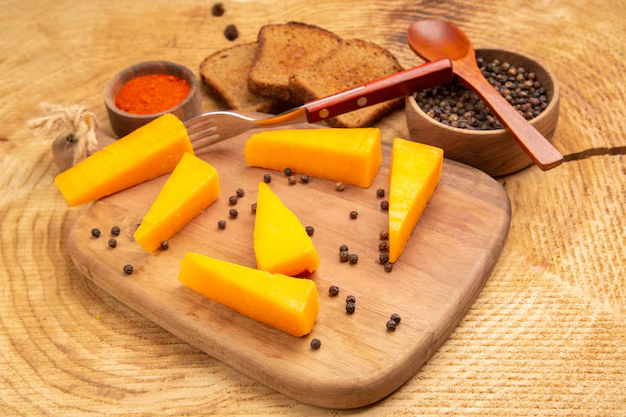The Ultimate Guide to Keeping Carrots Fresh in Your Refrigerator 🌿🥕
Carrots are a kitchen staple, loved for their crunchy texture and natural sweetness. However, ensuring they stay fresh and crisp in the refrigerator can sometimes be a challenge. Whether you're an experienced home cook or someone new to grocery shopping, knowing how to properly store carrots not only helps reduce food waste but also saves money and enhances your cooking experience. Let's dive into the art of keeping your carrots fresh, offering practical tips and insights along the way.
Understanding Why Carrots Go Bad 🍂
Before exploring storage methods, it's helpful to understand why carrots spoil. Carrots are naturally high in water content, making them susceptible to drying out. When they lose moisture, they become limp and unappealing. Additionally, improper storage can lead to decay, especially if excess moisture encourages mold growth.
Factors Affecting Freshness
- Moisture Loss: Carrots dehydrate over time, leading to a reduction in quality.
- Temperature Fluctuations: Sudden changes can impact their lifespan.
- Air Exposure: Constant exposure can cause them to dry quicker.
The Best Refrigeration Practices for Carrots ❄️
Refrigeration is the most effective way to prolong the shelf life of carrots. However, the key lies in how you prepare and store them.
Prepping Your Carrots
- Inspect and Choose Wisely: Select carrots without cracks, blemishes, or soft spots. Focus on those that feel firm and have a vibrant orange hue.
- Remove the Greens: If your carrots come with tops, trim them. The greens draw moisture from the carrots, speeding up wilting.
Storing Whole Carrots
- In the Fridge: Place them in the crisper drawer, where humidity and temperature are ideal for storing vegetables.
- Use a Perforated Bag: To balance moisture retention and air circulation, store carrots in a perforated plastic bag or a loosely sealed container.
Storing Cut Carrots
- Submerge in Water: Place cut carrots in a container filled with water to keep them crisp. Change the water every few days to maintain freshness.
Understanding Shelf Life ⏳
Carrots stored correctly in the refrigerator can remain fresh for weeks. Whole, unpeeled carrots, when properly stored, typically last between two to four weeks. Cut or peeled carrots, while still fresh, should ideally be consumed within two weeks.
Common Mistakes To Avoid 🚫
- Avoid Storing in Airtight Containers: It might seem like a good idea to limit air exposure, but keeping carrots in an airtight environment without any moisture can speed up dehydration.
- Don't Store Near Fruits Like Apples or Bananas: These release ethylene gas, which accelerates spoilage.
Additional Tips for Maximum Freshness 🌟
Use Paper Towels
Wrap carrots in paper towels before placing them in the fridge to help absorb excess moisture, preventing rot and decay.
Mindfully Use Temperature Settings
Refrigerators usually have different zones. Carrots stay freshest in the crisper drawer or the fridge's cooler zones.
Freezing for Long-Term Storage
If you find yourself with extra carrots you won’t use soon, consider freezing them. Blanch carrots first, allowing them to keep their bright color and nutrients. Once blanched, dry and store them in a freezer-safe bag.
FAQs on Carrot Storage ❓
Can You Store Cooked Carrots in the Fridge?
Yes, cooked carrots can be stored in airtight containers in the fridge and should be consumed within a few days.
What Are Those White Streaks on Carrots?
White streaks, commonly referred to as "white blush," occur when carrots lose moisture. They're safe to eat but may lack some crispness.
Is It Safe to Eat Sprouting Carrots?
Sprouts aren't harmful, but they indicate a reduction in quality. It's best to remove the sprouts before consuming.
Quick Tips to Keep Your Carrots Fresh 🥕
Here's a handy guide to ensure your carrots remain fresh and delicious:
- 🥕 Choose Fresh: Prioritize firm and blemish-free carrots.
- ✂️ Trim Greens: Remove tops to prevent moisture loss.
- 💧 Balance Moisture: Store in perforated bags or submerged in water.
- ❄️ Refrigerate Properly: Use the crisper drawer or cooler zones.
- ⚠️ Keep Away from Ethylene Producers: Avoid proximity to apples or bananas.
Approaching Potential Spoilage and Using Carrots Wisely 🥕
You're bound to encounter situations where carrots might still be slightly past their prime. Here’s how you can make the best of it:
Incorporate in Soups and Stews
Slightly soft carrots are perfect for soupy dishes where texture is less noticeable.
Puree for Sauces
Create a sauce or dip with cooked carrots, blending with spices and liquids.
Grate for Baking
Slightly dehydrated carrots work great in baked goods like cakes and muffins.
Embracing a Waste-Not, Want-Not Culture 🌎
Ensuring your carrots—and indeed all produce—remain fresh is part of a broader movement to minimize waste. By expanding your understanding of food storage techniques, you contribute to a more sustainable future. The benefits are many: fresher food, reduced spoilage, and a lighter environmental footprint.
In Conclusion
Properly storing carrots in the refrigerator involves understanding their needs and creating an environment that maintains their freshness. By selecting quality carrots, adjusting refrigeration settings, and utilizing smart storage techniques, you can extend their shelf life significantly. Whether using them in salads, stews, or as snacks, fresh carrots offer unparalleled taste and nutrition. Embrace these techniques, and enjoy the extended perks of having fresh carrots at your fingertips. 🥕✨

